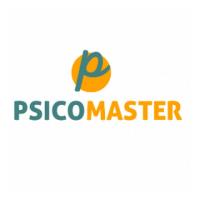ADHD in patients with Substance Addictions
He Attention deficit disorder and hyperactivity (ADHD) is increasingly known and for this reason, research on it has increased in recent years. In this regard, it has been discovered that there is a significant correlation between suffering from ADHD and the consumption of addictive substances. To get used to the idea, if the percentage of adults with ADHD is 3%, this figure rises to 46% in patients with drug addiction.
Since these figures are so high, it is extremely important to be able to detect this neurodevelopmental disorder as soon as possible in order to address the problem with early treatment. With this, it would be possible not only to reduce impulsivity and hyperactivity, but also the probability that the person would fall into substance abuse would decrease. Such is their correlation that a study carried out a few years ago concluded that patients with ADHD and drug addiction showed a tendency to start early in them and to experience drug use more freely in their adolescence, compared to those addicted patients without ADHD.
Before we get into the article, it is important to clarify that just because a child has ADHD does not guarantee that they will suffer from drug problems during adolescence or adulthood. The key here is to be aware of this relationship between the two in order to establish prevention measures at home and, if necessary, seek professional help.
In today's article, we will talk about the relationship between ADHD and patients with substance addictions. Why are people with ADHD more likely to abuse drugs? What can parents or primary caregivers do about this? If you are interested in the answer to these and other questions related to the disorder and drug addiction, keep reading.
- Related article: "How to avoid Relapses in Addictions?"
drugs of choice
As we have been commenting so far, Because people with ADHD are highly impulsive, they tend to be more vulnerable to addiction.. Put another way, the brains of people with this disorder are hungrier for these experiences because of the way they are neurologically oriented. As a result, they may progress to addiction faster than neurotypical adolescents. Now, what are the drugs you consume the most?
Based on research, it is known that marijuana is the number one substance used by adolescents and young adults with ADHD, followed by alcohol and nicotine. After all, these people tend to choose substances that slow down their thoughts as their heads move at a very fast and exhausting pace. Therefore no wonder marijuana is the most widely used among them, as it causes mild sedation and euphoria.
- You may be interested in: "Dual Pathology: Causes and Associated Treatments and Disorders"
Why are people with ADHD more likely to abuse drugs?
This is a well-studied question in the area of psychology, and there are several theories that explain why ADHD increases the risk of substance abuse. In the first place, the impulsiveness, lack of judgment and school problems that these women often have people is closely related and increases significantly in substance use addictive. In addition, the possibility of a genetic link between ADHD and the vulnerability to develop a substance abuse disorder is being considered.
Finally, it is also hypothesized that individuals with ADHD could try psychotropic drugs to self-medicate, and this could be the beginning of a troubled journey with substance abuse.
- Related article: "Types of drugs: know their characteristics and effects"
Why should treatment be started as soon as possible?
It is crucial to highlight the importance of early treatment. Several investigations conclude that children who receive ADHD treatment at a younger age may be less likely to develop substance use disorders compared to those who start treatment later.
Therefore, it is not surprising that this information should be known by the parents or caregivers of these children. After all, through education and later treatment, it is the only way to try to alleviate substance abuse later in life.
Do ADHD Medications Increase the Risk of Drug Dependence?
Stimulant medications are considered a treatment of choice for ADHD. However, there is a misconception that such medications increase the likelihood of substance use, but this is not supported by any research. But, of course, extreme vigilance is recommended to prevent its misuse.
What has been found is that short-acting stimulants tend to be abused more frequently than long-acting or non-stimulant medications. Therefore, it is important to maintain contact with the doctor in order to obtain more information and adequate follow-up.
Guidelines for parents
We have talked about the importance of parents in knowing all this information in order to prevent possible use of addictive substances. Therefore, it is important to spend some time analyzing what parents or primary caregivers can do. Here are some guidelines:
- It's important to pay close attention to any changes in your child's behavior, even if you think it's because of the disorder.
- Create a secure bond with your child where you can discuss what is safe and acceptable behavior. In addition, it is crucial that the parent or caregiver serve as a role model, so do not drink alcohol, do not smoke, and do not use illegal drugs.
- Take a look at your child's circle of friends. After all, if you're dating someone who uses drugs, chances are your child is being exposed to drugs as well.
- Inform your child about the importance of taking all medications, including stimulants, exactly as prescribed. Discuss side effects and other concerns with your child's doctor in complete confidence.

